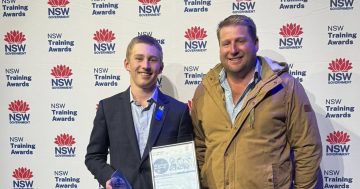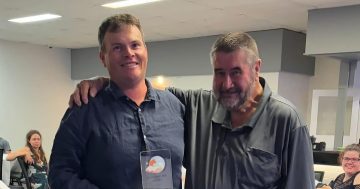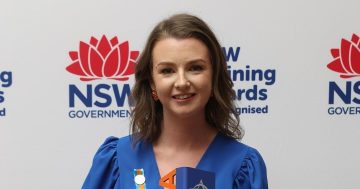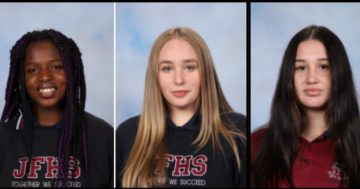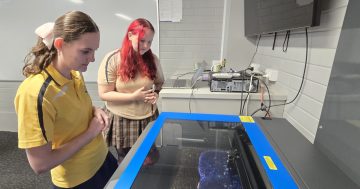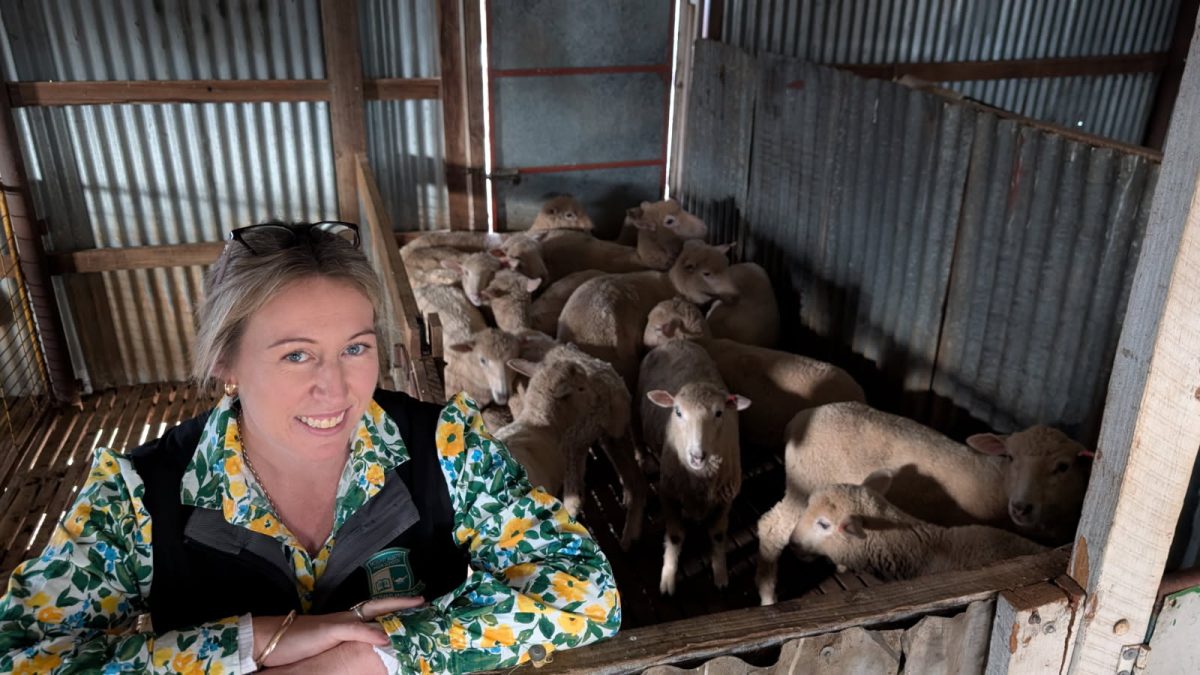
Holly Moore’s classes are designed to give her students a chance to handle smaller animals. Photo: Jarryd Rowley.
In the five years since Holly Moore joined Mount Austin High School, the school’s agriculture and primary industries program has expanded from two to seven classes across multiple year levels.
The agriculture teacher has been named a finalist for the Vocational Education and Training (VET) Trainer/Teacher of the Year for her work in cultivating the school’s agriculture program.
“These students aren’t from farming backgrounds even though we live in this rural area,” Ms Moore said.
“I have kids coming in Year 7 going, ‘What? Chickens lay eggs?’
“It’s so extreme that I’m going, ‘Oh my gosh, you have not stepped outside of Wagga’.
“To build these foundational skills is so important to lead into a career in this area because we have such a large agriculture industry.”
Her favourite part of teaching is getting the “warm fuzzies” when students finally understand a concept they’re struggling with.
“A student will be working away hard at something, and they’re just not getting it,” she said.
“You can explain three different ways, and then all of a sudden, you take them outside, and you put it in a different perspective, and then they go, ‘Oh!’
“I like to call it the ‘warm fuzzies’ … it’s that moment when you’ve actually taught them something.”
Ms Moore was quite close with her pop, who was a farmer. Watching her pop work on the farm gave her an appreciation for how hard farming is.
She got her Certificate IV in Wool Classing from TAFE during her final two years of high school.
“I went down the VET avenue,” she said. “I just picked primary industries, but I loved the hands-on learning.
“So once I finished high school, I thought, well, I need to be a teacher.
“I love education. So from that, I went to university and studied and did my wool classing on the side.
“My agriculture teacher was incredible, and I still talk to him now. I’ll give him a buzz if something’s happening.”
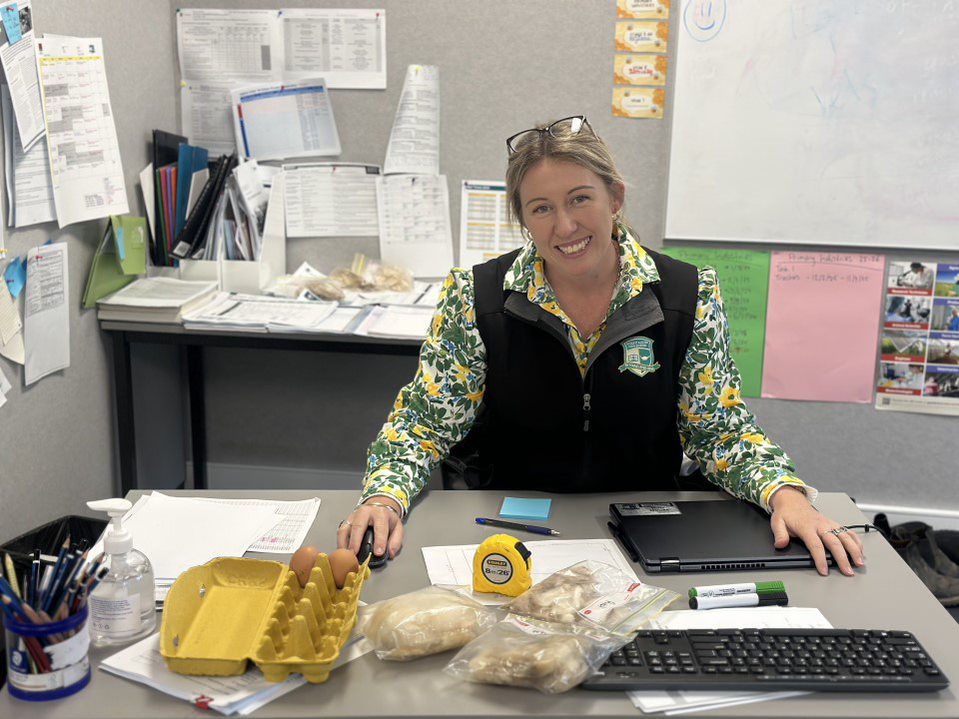
Holly Moore classes wool on the side. Photo: Erin Hee.
At Mount Austin High Ms Moore noticed students were struggling in literacy and numeracy. To help them she practises guided reading in her classes, reviewing articles from agriculture publication The Land and comparing them with an issue happening in ABC’s national agriculture program, Landline.
“I can’t clearly just go in and start teaching photosynthesis; we have to really stage the way we progress through our learning [and] scaffold our learning,” she said.
“Because I do find our students struggle in literacy and numeracy, and that’s all what agriculture is about. At the end of the day, it is a science.”
Ms Moore believes students would benefit from more non-traditional learning methods. Her classes are designed to let students have hands-on experience with farming and handling smaller animals.
“I am all for non-traditional classrooms, like my students need to be outside, hands-on doing,” she said. “I think you learn best when by doing.
“They’ve sort of done a bit of a restructure on the VET courses.
“One of the aspects was biosecurity in primary industries. So it’s about getting out there. Can you wash the tractor? Can you pull the guards off it? Can you clean it?
“That’s where we should be teaching.
“But I mean, then it puts strain on so many other things too.
“Just referring [to Mount Austin High] … if we’re doing something with the sheep, I need to make sure, you know, I’ve got the power and cutters and we’ve got the tags [and] the resources equipped and ready to go. It puts an extra bit of strain to do constant activities.”







